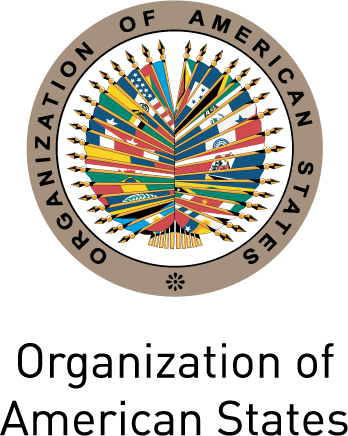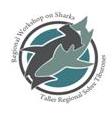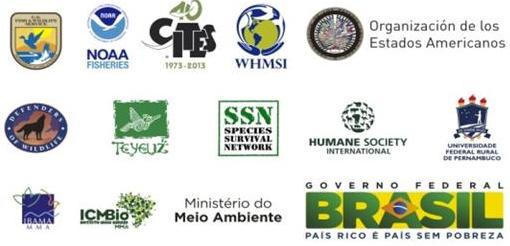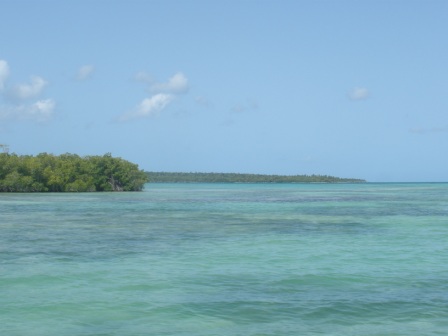Western Hemisphere Migratory Species Initiative
On-going Projects
Publications
Past Events
Western Hemisphere Migratory Species Initiative



Regional Workshop on Sharks
Date: December 2-4, 2013
Place: Recife, Pernambuco, Brazil
More than 70 participants representing 28 countries from Latin America and the Caribbean gathered in Recife, Brazil, from 2 to 4 December to participate in a workshop focused on the implementation of new measures for international trade of five shark species, adopted by the Convention on International Trade in Endangered Species of Wild Fauna and Flora (CITES).
Experts covered a range of legal, administrative and scientific topics at the workshop, based on concrete needs identified by countries. Specifically, the workshop provided information on and demonstrated the use of tools and techniques that will help advance identification of sharks, improve data collection and data reporting on shark catch in the region, and enhance the tracking of shark specimens in trade. Participants were provided with real-life examples of how CITES is implemented for several currently listed species and demonstrated how a chain of custody can be established to monitor shark products from the point of harvest to the point of export.

The workshop also helped to increase awareness of international measures related to shark conservation and management. Participants identified regional needs and next steps for implementing the CITES shark listings in Latin American and Caribbean countries. Scientific surveys on the status of sharks species, domestic legislation, harmonization of Customs codes for trade in sharks and technology transfer for DNA testing, were among the priorities mentioned. These priority areas are expected to help guide future activities leading up to the September 2014 effective date. To read the complete press release please click here

Day 1: Tuesday 03 December 2013
Topics:
Establishing the Context: CITES Appendix II requirements for sharks:
- Identification Techniques and Tools for CITES-Listed Sharks
8:00-8:30 a.m. |
Welcome and introductory remarks |
Fabio Hazin Universidade Federal Rural de Pernambuco (UFRPE), Brazil |
Presentation |
8:30-10:30 a.m. |
Overview of CITES Appendix II Requirements for Sharks: Panel Format moderated by Fabio Hazin |
Juan Carlos Vasquez, CITES Secretariat Overview of CITES and Appendix II Requirements and Marine Species in CITES Fabio Hazil, UFPE Introduction from the Sea Carlos Polo, Jefe Oficina de Generación del Conocimiento y la Información AUNAP, Government of Colombia CITES Appendix II in Action: CITES Appendix II implementation and regulations - including collaboration of different agencies and offices (ex. fisheries, customs, enforcement) |
Presentation Presentation Presentation |
| 10:30-11:00 a.m. | Break | ||
11:00-11:30 a.m. |
Overview of Shark Identification Guides and Tools: Provided a general overview of the type of guides and tools that are available to ensure that participants are aware that resources are available and point out that a variety of tools are needed for a variety of audiences including fishermen, port authorities and custom authorities. |
Jimmy Martinez WWF (formerly Ministry of Agriculture, Livestock, Aquaculture and Fisheries, Government of Ecuador) |
Presentation |
11:30-12:30 p.m. |
Overview of Software for Shark Identification: Introduced FAO’s software for identification of shark fins in trade based on measurements, including the fins of CITES-listed shark species and fins of shark species that are similar in appearance. |
Monica Barone FAO |
Presentation |
| 12:30-2:00 p.m. | Lunch | ||
2:00-2:30 p.m. |
Shark Fin Guide Presentation: Shared the shark fin identification guide and demonstrated how it is used to identify the fins of the CITES-listed shark species. |
Demian Chapman Stony Brook University |
PDF Document Presentation |
2:30-3:30 p.m. |
Genetic Approaches for Shark Identification: Discussed genetic identification tools to assist in the identification of shark products in trade and demonstrated techniques using handouts and a video. |
John Hyde NOAA National Marine Fisheries Service, Government of the United States |
Presentation Shark DNA Practice Exercise DNA Shark ID Sheet Species Identification Protocol for Sharks |
3:30-4:30 p.m. |
Training on the Use of Shark Identification Guides for Mexico, Caribbean, Central, and South America: Share shark identification guides and demonstrate how they can be used to identify the CITES-listed shark species. |
Juan Carlos Cantu Defenders of Wildlife
|
Presentation Guide Mexico, Central America and the Caribbean Guide Mexico and Central America Pacific Ocean Guide South America Atlantic Ocean Guide South America Pacific Ocean |
| 4:30-5:00 p.m. | Summary and Break | ||
5:00-7:00 p.m. |
Breakout groups with 4 stations and each group will take a turn at each station |
|
Day 2: Wednesday 04 December 2013
Topics:
- Making a Legal Acquisition Finding under CITES
- Establishing a Chain of Custody for Shark Products in Trade
- Breakout group discussions and brain storming
- Moving Forward: Identification of Next Steps and Regional Priorities
8:00-8:30 a.m. |
Summary of what was covered on Day 1 and introduction to Day 2 |
Fabio Hazin Universidade Federal Rural de Pernambuco (UFRPE), Brazil |
|
8:30-10:30 a.m. |
Making a Legal Acquisition Finding under CITES – Panel Format moderated by Maria Elena Sanchez, SSN/Teyeliz: Introduced and showcased how legal acquisition relates to the spectrum of possible management regimes for CITES-listed species. Real-life examples help CITES Parties get a better sense of how a legal acquisition can be made and help others understand how to approach implementation of the CITES shark listings that were adopted at CoP16. |
Juan Carlos Vasquez, CITES Secretariat How to Make a Legal Acquisition Finding and Relevant Existing CITES Resolutions that Might be Applicable Ramon Bonfil RFMO Shark Measures and how these can be used in Legal Acquisition Findings Juan Pablo Caldas, Ministry of Environment and Sustainable Development, Government of Colombia and Laura Noguchi, Fish and Wildlife Service, Government of the United States Examples from Parties on Legal Acquisition Findings for Specific Species and/or Situations |
Presentation Presentation Presentation Presentation |
| 10:30-11:00 a.m. | Break | ||
11:00-12:30 a.m. |
Establishing a Chain of Custody for Shark Products in Trade: Demonstrated how a chain of custody for sharks could serve as a model for other CITES Parties for monitoring shark products in trade. |
Jimmy Martinez WWF (formerly Ministry of Agriculture, Livestock, Aquaculture and Fisheries, Government of Ecuador) |
Presentation |
11:00-12:30 a.m. |
Fish Document of Origin: Presented a proposed system for the control and traceability of fish products |
Henrique Anatole IBAMA, Minstério do Meio Ambiente, Government of Brazil |
Presentation |
| 12:30-2:00 p.m. | Lunch | ||
2:00-4:00 p.m. |
Break out groups by regions for discussions on strategies for applying the knowledge gained from the workshop in each of the participant countries: Reflected on the workshop, shared experiences, identified and prioritized gaps, and discussed how to use the knowledge acquired at the workshop to effectively implement the CITES Appendix II requirements for sharks. |
|
Questionnaire Regional Priorities and Next Steps Regional Priorities and Next Steps Regional Priorities and Next Steps Regional Priorities and Next Steps |
| 4:00-4:30 p.m. | Break | ||
4:30-5:30 p.m. |
Summarized the findings of the break out groups and discussed priority needs for the region, next steps and how to collectively work to address priority needs including at future workshops. |
Moving Forward: Regional Priorities and Next Steps |
Report |
5:30-6:00 p.m. |
Summary and Closing Remarks by the Brazilian Government |
Report of the Regional Workshop on Sharks Listed in Appendix II of CITES |
Report |


